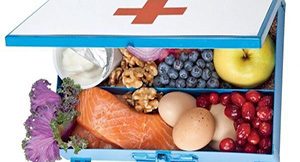
Eat your way to a full recovery from injury! In this months newsletter we will be looking at the basics of nutrition to help manage inflammation and speed up our bodies’ ability to repair and recover.
When you sustain an injury, the body goes through 3 main stages of recovery:
1: Inflammation stage (0-5 days post injury). Blood flow increases at the site of injury to deliver a range of chemicals and blood cells needed to help remove damaged tissue and protect against infection. However, if inflammation is prolonged it can lead to a slower recovery,
2: Proliferation stage (Last between 4-6 weeks depending on the injury). New tissue (especially collagen) is formed. This tissue is generally much weaker than the original tissue, and serves as a foundation for further repair.
3: Remodelling stage (Depending on the injury can last up to 6 months). The repaired tissues remodel themselves into strong functional tissue at the site of the injury. If this stage doesn’t occur the tissue is weakened and prone to re-injury.
Food provides the building blocks for repair and recovery. By making simple modifications to our diet, each stage of injury recovery can be supported and optimized.
Nutrition to manage inflammation
Certain foods contain natural anti-inflammatory enzymes, such as turmeric, ginger, garlic, bromelain, flavanoids and blackcurrants. MAke sure to include these in your diet when you sustain an injury.
Supplement your diet with Omega 3 Fats by taking fish oil, cod liver oil, or flax seed oil supplementation, or Omega 3 rich foods such as raw nuts or avocado. These all have an anti-inflammatory function.
Avoid pro-inflammatory foods such as highly processed foods, fatty red meat, saturated fats, caffeine, sugar and alcohol.
Nutrition to support proliferation and remodeling
Muscles and nerves are made from protein and fats. Therefore it is essential that your diet has adequate quantities of good quality fat and protein. In general, it is recommended that a portion of protein is included in every meal that you have. Examples of good fats include coconut oil, Omega 3s, avocado, butter and mixed nuts.
Supplement your diet with Vitamin C and Bioflavanoids to help your body to lay down collagen, the tissue that begins your tissue repair.
Supplementation with specific Amino Acids such as Glutamine, Ornithine and Arginine has been shown to improve tissue repair and lead to reduced time to recovery. Visit your health food / supplement store for more information on these products.
NB: The information above is a basic nutrition guide to help manage and recovery from injury. If you have any specific dietary requirements or health problems, please consult your GP or nutritionist for advice before implementing the advice above.










